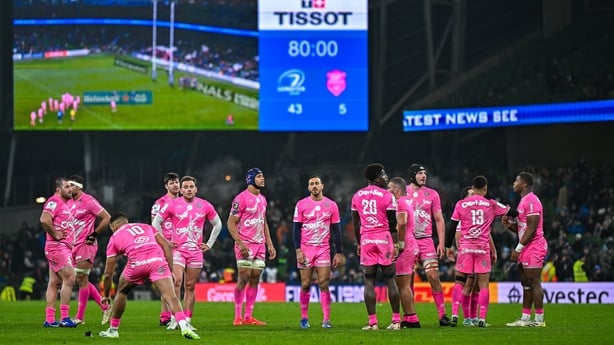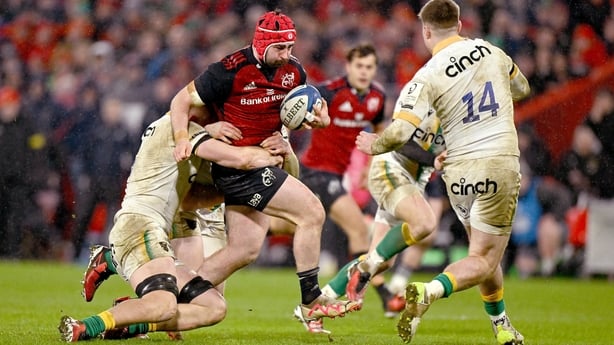The Champions Cup pool games came to a close last weekend and while there were some calculations needed to figure out the last-16 seedings, it feels like the life has been sucked out of this pool format.
Every sport has to evolve and I'm not resistant to change. However, adding a round of 16 means that teams with only one win in their pool can go through and survive in the competition.
It might not give that team a great shot at winning the tournament because of an away draw, but it keeps their European hopes alive with less effort, despite them not being at the level to be genuine challengeres.
It's also the reason why teams could afford not to take on the likes of Leinster in the pool stages. They could send a fully changed team to rest their players in order to target their own domestic league, as we saw recently with Stade Francais in Dublin.

That’s not what a tournament of champions should be about.
You should be aiming to take a scalp, knowing that any win could be a psychological advantage should you meet them again later in the competition, the way Leinster approached La Rochelle.
It also doesn’t help that the home and away fixture format has been abolished, with teams playing four fixtures against four different teams.
It takes away some of the rivalries that were built up in the older format.
In previous years, there was a great focus on the home and away fixtures. If you could win your home games, beat one of the lower seeded teams away from home and get bonus points on the road, you had a good chance of contending for one of the two best runners-up spots.
It meant that teams scrapped for everything, whereas now you just don’t have to compete as hard to advance.
The current format means that 16 teams will qualify for the knockout stages. While rankings matter, with the highest points totals from pool matches counting for home advantage and potentially an easier knockout game, there are too many teams involved to get too worried about who you will face next.
The older structure only allowed for the six pool winners to go through automatically, as well as two of the best runners-up.
You had to cast your eyes across all the pools to see who would make it through and the final weekend of the pool games was much more exciting.
It may have appeared like a complicated structure now, but it was already in place and seemed to work well.
As it stands, there’s an extra knockout game which organisers might feel adds to the excitement and buzz around the competition. However, there are less pool games and those pool games of old were as good as the knockout games we’ll see now, because everything was contested.
Perhaps the organisers feel that there could be extra revenue from the added knockout round. Yet, when the pool games were more competitive, sell-outs were commonplace.
European rugby may well have wanted one game less in an already congested and hugely physical world rugby calendar, but the old Heineken Cup was a top-tier competition and it feels like we’ve moved away from that standard.
That, however, has nothing to do with the inclusion of South African teams.
I welcomed their involvement from the start and believe that they add another dimension to the competition. There may be extra complications with travel and organisation, but the old structure would still trump the current format of the competition.
On top of that, with more teams added to the knockout rounds, there’s an increased possibility of pool rivals facing each other again. That is exactly what has happened this year with five of the eight ties in the round of 16 being a repeat of pool collisions.

It contradicts the point surrounding home and away fixtures creating rivalries, but there’s a different dynamic in the pool stages when that fixture is guaranteed and it’s more of a chess match with bonus points added into the mix.
Of the three other fixtures, two of them are domestic match-ups and so only one game is really novel for this year’s competition: Exeter versus Glasgow.
There have been calls for structuring the draw in a similar fashion to the World Cup so that knockout games don’t become repeat fixtures, where the winner in Pool A could play the fourth team in Pool B for example, avoiding a possible repeat meeting until later in the competition.
It's still likely that the top seeds will get to the semi-final stages considering their home advantage, and that the top two seeds are guaranteed to be at home until the final, should they get there.
There’s loads of Champions Cup action left this season. The repeat fixtures may well be forgotten about by the time we go again in April, with an exciting Six Nations in between.
The pool stages of the Champions Cup may have lost some of its essence, but from here on, we should at least get the full experience of competitive, knockout action.

